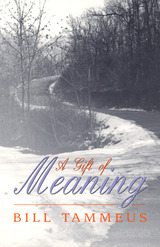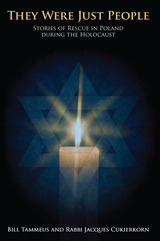
Because of the peculiar momentary nature of journalism, not every column can stand the test of time. But many—even those about events nearly gone from the public consciousness--contain lasting truths. A Gift of Meaning is a collection of those lasting truths from Bill Tammeus, a columnist for the Kansas City Star.
Each piece reveals Tammeus's attempt to wrestle eternal meaning from the events and experiences that sweep us along day by day.
I stopped by a homeless shelter the other day to see someone I know. As I waited, I felt rather conspicuous in my suit and tie. In fact, the friendly man at the information desk asked me if I was a pastor. I chuckled.
But as I sat in the lobby waiting to see the man I came to check on, I was struck again by what may be the most difficult of all human tasks: empathy. That is, the challenge of really putting ourselves in the shoes of others.
In the end, A Gift of Meaning is not just a presentation of found meaning, but also a call to readers to stop and think for themselves. This book is an invitation to breathe deeply and seek out the meaning of what the world heaves at us each day. It is an offering of insights that will provide fresh ways of comprehending things readers thought they already understood.

READERS
Browse our collection.
PUBLISHERS
See BiblioVault's publisher services.
STUDENT SERVICES
Files for college accessibility offices.
UChicago Accessibility Resources
home | accessibility | search | about | contact us
BiblioVault ® 2001 - 2024
The University of Chicago Press









